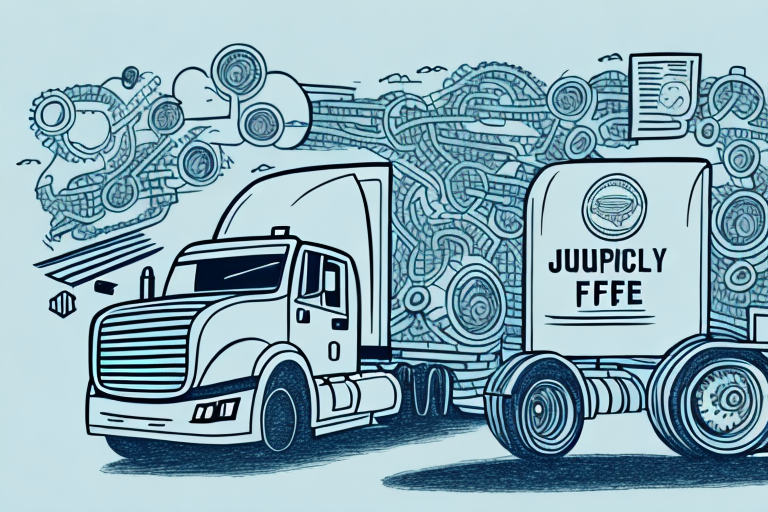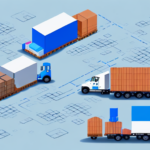What are Trucking Wait Fees and Why They Matter in the Supply Chain
In the competitive landscape of today’s supply chain, time is money. Any delay in the delivery process can result in extra costs and loss of revenue. One significant factor that can cause delays and add extra costs to supply chain operations is trucking wait fees. These fees are charges that carriers impose on shippers when their trucks wait for extended periods during loading or unloading.
Trucking wait fees can range from $50 to $150 per hour of wait time, quickly accumulating to thousands of dollars for each instance. According to the American Trucking Associations, inefficiencies in loading and unloading processes are among the top causes of delays in the logistics industry.
These fees are charged by carriers to cover their operational costs for idle trucks, including driver compensation, fuel, and equipment maintenance. While common, they can be a significant burden on shippers' budgets, especially when they occur frequently.
Impact on Business Operations
Trucking wait fees can cause significant delays in the delivery process, leading to unsatisfied customers, lost sales, and added expenses. Additionally, frequent wait times can strain the relationship between carriers and shippers, increasing friction and tension.
Environmental Considerations
Idle trucks consume fuel and emit pollutants, contributing to air pollution and climate change. By reducing wait times and optimizing the delivery process, shippers and carriers can help decrease their carbon footprint and promote sustainability in the supply chain.
How Do Trucking Wait Fees Affect Your Business Operations and Bottom Line
Trucking wait fees can profoundly impact your business operations and financial health. Delays due to loading or unloading can disrupt the entire supply chain, leading to a domino effect of delays and added costs.
Financial Implications
Delayed delivery times can result in lost sales and damaged customer relationships. The cumulative costs associated with delayed trucking operations lead to increased transportation expenses, reduced revenue, and diminished profitability.
Employee Morale and Productivity
Extended wait times can frustrate drivers, decreasing job satisfaction and potentially leading to higher turnover rates. This disruption affects overall productivity and the ability to retain skilled drivers.
Environmental Impact
Prolonged idling of trucks increases emissions and air pollution, which not only harms the environment but also risks fines and penalties for non-compliance with environmental regulations, as outlined by the Environmental Protection Agency.
The Impact of Trucking Wait Fees on the Logistics Industry
Trucking wait fees significantly influence the logistics industry, affecting both carriers and shippers. Carriers face lost revenue and increased costs to maintain their vehicles when trucks are idle. Conversely, shippers incur extra charges, delays, and potential damage to goods during extended wait times.
Operational Efficiency
Inefficient loading and unloading practices reduce transportation effectiveness, leading to lower productivity and output. According to a Supply Chain Digital report, optimizing loading processes can enhance overall supply chain efficiency by up to 20%.
Technological Solutions
Implementing technology-driven solutions can mitigate the impact of trucking wait fees. Real-time tracking and monitoring systems help carriers and shippers optimize operations, reduce wait times, and improve efficiency. Automated loading and unloading systems also minimize the time and resources required, thereby reducing wait fees.
Industry Standardization
The lack of standardization in the trucking industry contributes to confusion and delays. Developing industry-wide standards and guidelines can provide a more consistent and efficient approach to transportation operations, reducing the impact of trucking wait fees on the logistics sector.
Common Reasons for Trucking Wait Fees and How to Avoid Them
Several factors contribute to trucking wait fees, including:
- Slow or inefficient loading and unloading processes
- Lack of communication between carriers and shippers
- Incorrect or incomplete paperwork
To avoid these fees, shippers can adopt the following strategies:
- Improve Planning and Communication: Establish clear communication protocols with carriers to ensure timely loading and unloading.
- Collaborate with Carriers: Work closely to identify and address potential issues before they occur, such as providing necessary documentation in advance.
- Equip Loading Docks: Ensure loading docks are equipped to handle the trucks’ size and requirements.
- Adopt Automated Systems: Implement automated check-in and check-out procedures to streamline the process.
- Understand Industry Regulations: Familiarize yourself with trucking industry regulations to better plan operations and avoid unnecessary fees.
- Explore Alternative Transportation: Consider rail or intermodal options for cost-effective and efficient shipments.
Negotiating Trucking Wait Fees with Carriers: Tips and Tricks
While trucking wait fees are standard, they are negotiable. Shippers can employ several tactics to reduce these costs:
Clear Communication of Expectations
Shippers should be transparent about their expectations and goals regarding delivery schedules and wait times. Clear communication helps set mutual expectations and reduces the likelihood of unexpected fees.
Research and Understand Market Trends
By researching current market trends and industry standards, shippers can negotiate fair rates. Resources such as the Bureau of Labor Statistics provide valuable data on industry rates and practices.
Build Strong Relationships
Establishing a good relationship with carriers through open communication and respect can facilitate successful negotiations. Offering incentives like guaranteed loads or consistent business can encourage carriers to collaborate on reducing wait fees.
Best Practices for Managing and Reducing Trucking Wait Fees in Supply Chain Management
Effective management of trucking wait fees involves adopting multiple best practices:
Optimize Loading and Unloading Processes
Streamline loading and unloading to minimize wait times. This can involve training staff, using efficient equipment, and implementing standardized procedures.
Leverage Technology
Utilize real-time tracking systems to monitor shipments and identify potential delays early. Automated check-in and check-out procedures can also enhance efficiency.
Optimize Delivery Schedules
Plan deliveries during off-peak hours to avoid traffic congestion and reduce wait times. Tools like Geotab offer solutions for optimizing delivery routes and schedules.
Partner with Third-Party Logistics Providers
Collaborating with 3PLs or freight brokers can help identify and address inefficiencies in the supply chain, leading to reduced wait times and fees.
Implement Real-Time Tracking Systems
Real-time tracking allows shippers to monitor the location and status of shipments, enabling proactive measures to avoid delays and associated fees.
Regularly Review and Analyze Supply Chain Processes
Conduct regular audits of carrier performance, analyze data on wait times and delays, and seek feedback from carriers and stakeholders to identify areas for improvement.
Legal Considerations for Trucking Wait Fees in Transportation Contracts
Trucking wait fees should be explicitly defined in transportation contracts between shippers and carriers to prevent misunderstandings and disputes. Shippers should ensure that contract language clearly outlines the terms and conditions related to wait fees.
Consult Legal Experts
Engage legal professionals to draft contracts that protect your interests and ensure clarity regarding trucking wait fees. This proactive approach helps avoid potential disputes and ensures compliance with industry regulations.
How Technology is Helping to Streamline Trucking Wait Time and Reduce Costs
Advancements in technology have transformed the supply chain industry, making it easier to streamline operations and reduce costs.
Real-Time Tracking and Monitoring Software
Tools like Fleetmatics allow carriers to plan and adjust delivery schedules in real-time, minimizing idle time and wait fees.
Automated Procedures
Automated check-in and check-out systems eliminate the need for manual paperwork, reducing errors and speeding up the loading and unloading process.
Cloud-Based Platforms and Data Analytics
Platforms such as SAP Supply Chain Management offer data analytics tools that help optimize supply chain processes, track costs, and identify improvement areas.
The Future of Trucking Wait Fees: Trends and Predictions in Supply Chain Management
The future of trucking wait fees is set to evolve with ongoing advancements in supply chain management and technology.
Predictive Analytics and Artificial Intelligence
Leveraging predictive analytics and artificial intelligence can optimize delivery schedules, track wait times, and reduce costs associated with idle trucks. These technologies enable more accurate forecasting and efficient resource allocation.
Blockchain Technology
The adoption of blockchain can enhance data security and transparency, mitigating issues related to inaccurate or incomplete documentation. This ensures clearer communication and accountability between shippers and carriers.
Sustainability Initiatives
As environmental concerns grow, there will be increased emphasis on sustainable practices within the logistics industry. Reducing wait times not only lowers costs but also minimizes the environmental impact of idle trucks.
Conclusion
Trucking wait fees are a common and significant expense in today’s supply chain industry. However, by adopting best practices, utilizing new technologies, and negotiating effectively with carriers, shippers can effectively manage and reduce these costs. This leads to a more efficient and cost-effective supply chain process, enhanced customer satisfaction, and a reduced environmental footprint.




















